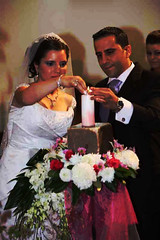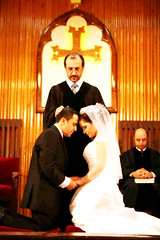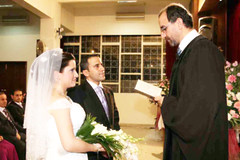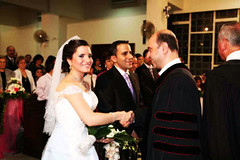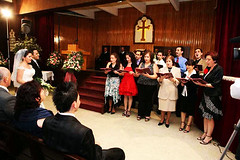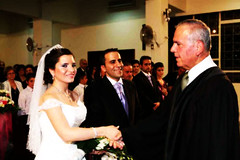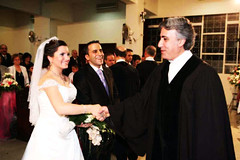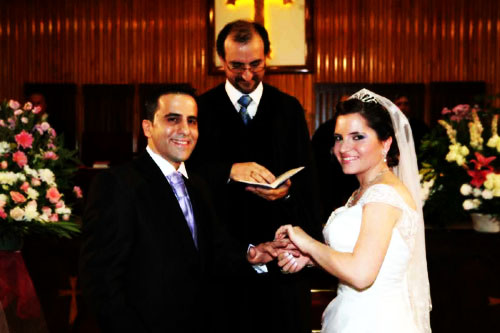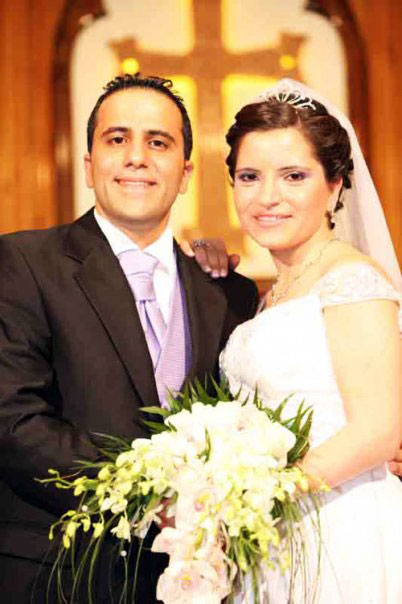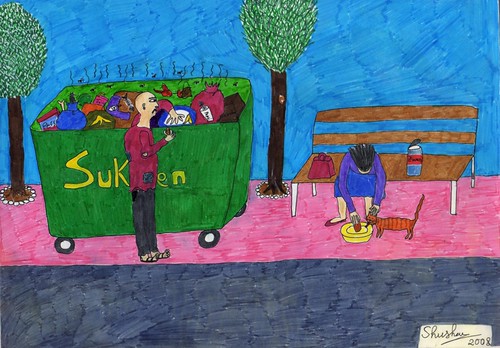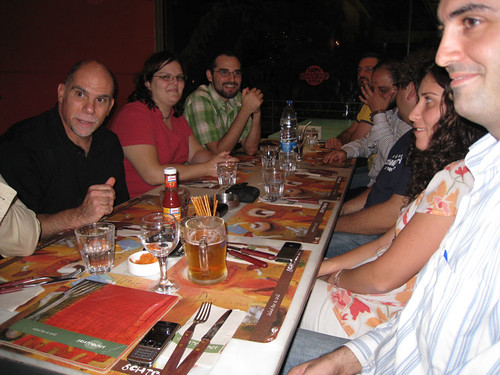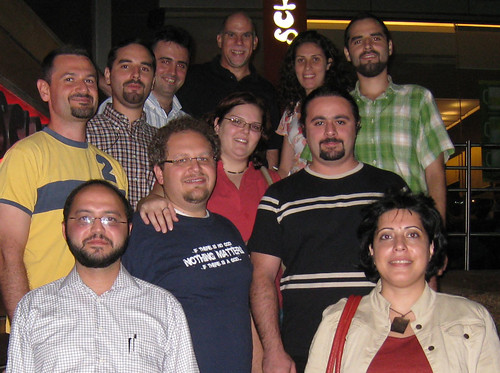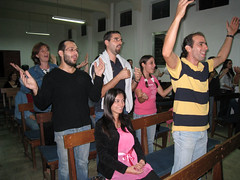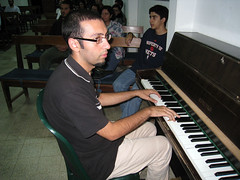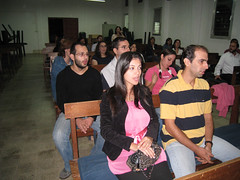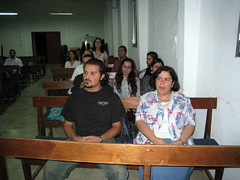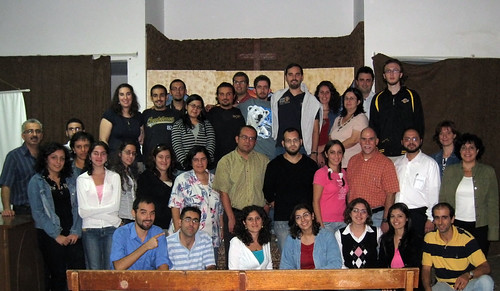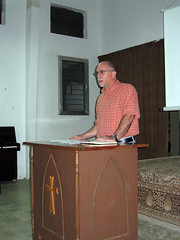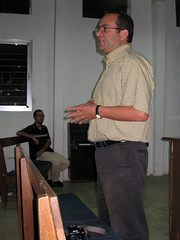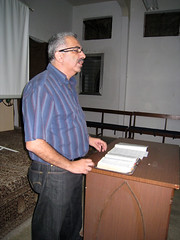
Մերձաւոր Արեւելքի հայ աւետարանական եկեղեցիներու միութիւնը խոր ցաւով կը գուժէ վախճանումը իր բազմավաստակ պատուոյ նախագահին, նախկին նախագահին, անդադրում քարոզիչին, անձնուէր հովիւին եւ ժրաջան առաջնորդին՝ վեր. դոկտ. Յովհաննէս Գարճեանի։ Վերջին քանի մը տարիներուն քաղցկեղի դէմ տարած իր պայքարէն ետք, ան վախճանեցաւ կիրակի, 23 նոյեմբեր 2008-ի կէսօրէ ետք ժամը 4։45-ին, հանդարտ քունի ընթացքին, իր տան մէջ, Սուարթամոր-Փենսիլվանիա (Միացեալ Նահանգներ)։
Վեր. Գարճեան ծնած էր Մարաշ (Թուրքիա), 30 յուլիս 1927-ին։ 1936-ին ընտանիքը կը փոխադրուի Հալէպ, ուր ան նախ կը յաճախէ Հայ աւետարանական Բեթէլ նախակրթարանը, ապա՝ Հալէպ քոլէճ, որուն երկրորդական ուսման ընթացքը կ՚աւարտէ 1945-ին։ Անմիջապէս կը սկսի երիտասարդ Յովհաննէս Գարճեանի քարոզչական-դաստիարակչական ծառայութիւնը՝ Գալատուրանի (Քեսապի շրջան) Հայ աւետարանական եկեղեցիին եւ նախակրթարանին մէջ։ Բարձրագոյն ուսման պապակը հանգիստ չի ձգեր զինք. ուստի Մերձաւոր Արեւելքի Աստուածաբանական ճեմարանի դասընթացքին կը միանայ շուտով։ 1953-ին կը վկայուի պսակաւոր աստուածաբանութեան եւ պսակաւոր արուեստից վկայականներով, աստուածաբանական դպրոցէն եւ Պէյրութի ամերիկեան համալսարանէն։ Նոյն տարին կ՚ամուսնանայ օրդ. Ռեբեկա Վարդանեանի հետ, եւ ընտանիքը կ՚օրհնուի չորս զաւակներով Փոլին՝ Նայիրի, Սեւան (տիկին Պալապանեան) եւ Տաթեւ-Նշան։
Վերապատուելի Յովհաննէս Գարճեանի հովուական ծառայութիւնը, որ սկսած էր 1945-ին, կը շարունակուի 1953-էն ետք եւս՝ Գամիշլիի Հայ աւետարանական եկեղեցիին, եւ ապա Հալէպի Հայ աւետարանական Էմմանուէլ եկեղեցիին մէջ, ուր կը ստանայ իր հովուական ձեռնադրութիւնը 1961-ին։ Պէյրութի Հայ Աւետարանական Ա. եկեղեցին անոր հովուական առաջնորդութիւնը կը վայելէ 1978-1986, Լիբանանի ներքին պատերազմի տարիներուն։ 1986-ին ան կ՚ընտրուի միութեան նախագահի պաշտօնը վարելու, նաեւ փոխանորդի միջոցով, տնօրինելու Լիբանանի Հայ աւետարանական համայնքի համայնքապետի պաշտօնը, մինչեւ պաշտօնապէս իր հանգստեան կոչուիլը, 1988-ին։ Բայց վեր. Գարճեանի հասկացողութեան մէջ դադար չկար հոգեւոր հովիւին համար. իբրեւ միութեան նախագահ ծառայած ատեն, ան երկու տարի յանձն առաւ Սիտնիի Հայաստանեայց աւետարանական եկեղեցիի հովւութիւնը, իսկ վերջին տարիներուն Ամերիկա հաստատուելէն ետք, Հեվըրթաունի Հայ աւետարանական եկեղեցիին հայերէն քարոզելու պարտականութիւնը։
Հովուական եւ միութենական ծառայութեան զուգահեռ՝ վեր. Գարճեան ծառայած է նաեւ իբրեւ Սուրիոյ Հայ աւետարանական համայնքի համայնքապետ, Հայկազեան համալսարանի եւ Մերձաւոր Արեւելքի աստուածաբանական ճեմարանի հոգաբարձութեանց անդամ եւ ատենապետ, նախագահ Աստուածաբանական ճեմարանին, Հայ աւետարանական համաշխարհային խորհուրդի անդամ եւ նախագահ, Միջին Արեւելքի եկեղեցիներու խորհուրդի Գործադիր մարմինի եւ Եկեղեցիներու համաշխարհային խորհուրդի անդամ։ Ան եղած է նաեւ հայերէն լեզուի դասատու, տնօրէն եւ Հալէպ քոլեճի նախագահ։ Վերապատուելին ունեցած է նաեւ հրատարակչական գործունէութիւն՝ շրջան մը խմբագրելով միութեան «Ջանասէր» պարբերաթերթը եւ հրատարակելով իր քարոզներու շարքերը։
Մերձաւոր Արեւելքի Հայ աւետարանական եկեղեցիներու միութիւնը երախտագիտութեամբ կ՚անդրադառնայ իր պատուոյ նախագահին՝ վեր. դոկտ. Յովհաննէս Գարճեանի պտղաբեր կեանքին եւ բեղուն ծառայութեան՝ փառք տալով Աստուծոյ անոր համար եւ աղօթելով առ Բարձրեալն, որ յաւիտենական կեանքի յոյսով մխիթարէ տիկին Ռեբեկան, անոր զաւակները եւ թոռները, եւ նման մշակներ հանէ իր հունձքէին։
ՆԱԽԱԳԱՀ ԵՒ ԿԵԴՐՈՆԱԿԱՆ ՄԱՐՄԻՆ
ՄԵՐՁԱՒՈՐ ԱՐԵՒԵԼՔԻ ՀԱՅ ԱՒԵՏԱՐԱՆԱԿԱՆ
ԵԿԵՂԵՑԻՆԵՐՈՒ ՄԻՈՒԹԵԱՆ
24 նոյեմբեր, 2008
Պէյրութ
It is with great sorrow that we inform you of the passing of our brother in Christ, the Rev. Hovhannes Karjian, after a long struggle with cancer. He passed away peacefully in his sleep at 4:45 p.m. today, November 23, the Lord's Day, at his home in Swarthmore, Pennsylvania, with his wife, Rebecca, and his daughter, Pauline, at his side.
Rev. Karjian departed this life at age 81 after many years of devoted pastoral service to the Lord, particularly in the Near East, where he was the President of the Union of Armenian Evangelical Churches in the Near East. He also served as pastor to the Armenian Evangelical Church in Sydney, Australia, was the president of the Near East School of Theology in Beirut, and is the author of numerous publications on Christian and Armenian topics. After his emigration to the U.S. in 2000, he graciously and willingly served as preacher in the Armenian language at the Armenian Martyrs' Congregational Church in Havertown, Pennsylvania, during a time of pastoral need in the life of the church.
He leaves behind his wife, Rebecca, his children Pauline, Nayiri, Sevan (Balabanian) and Datev, and their families. Arrangements for the memorial service are still being made, and we will communicate those plans to you when they are definite.
Let us pray for God's strength and the hope of the Gospel to surround and sustain the Karjian family in this time of grief, as well as thanking God for Badveli Karjian's service in the name of our Lord Jesus Christ.
L. Nishan Bakalian, Pastor
Armenian Martyrs' Congregational Church
Havertown, Penn.
